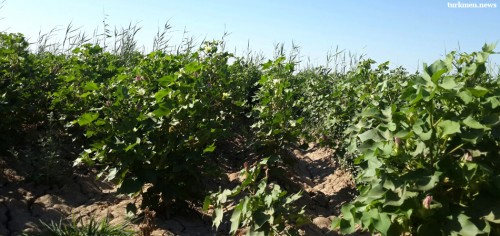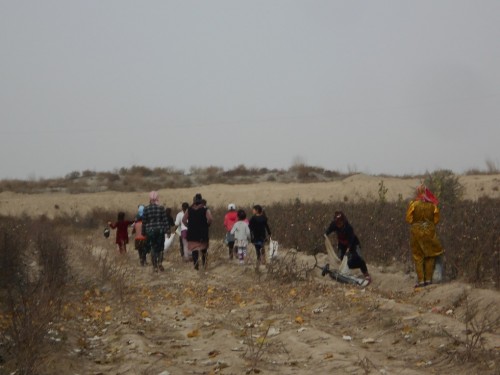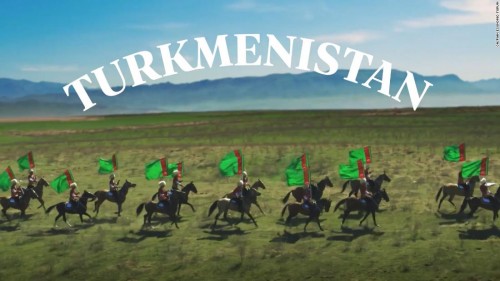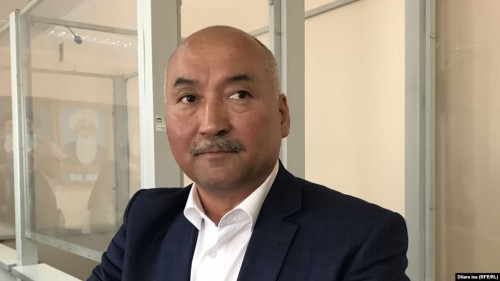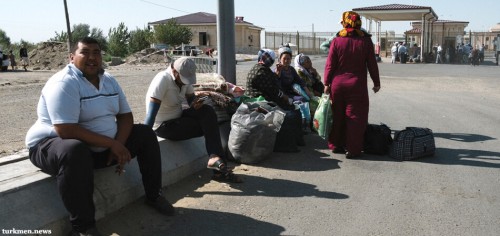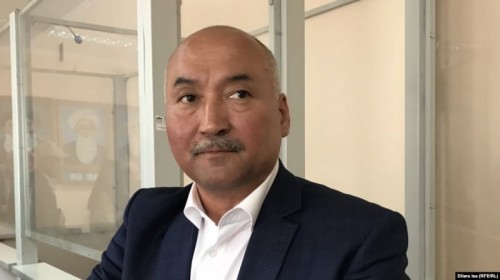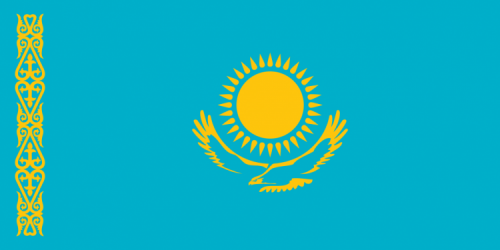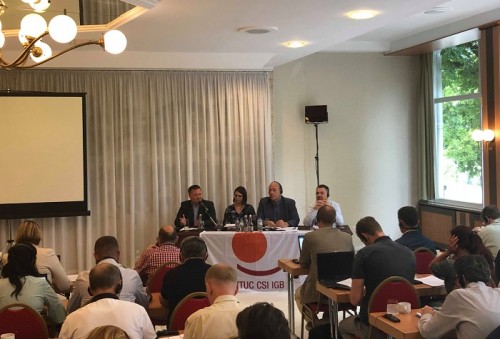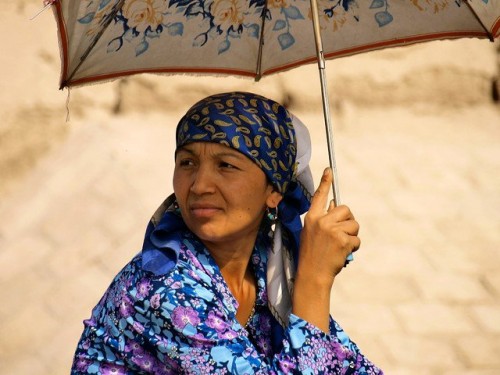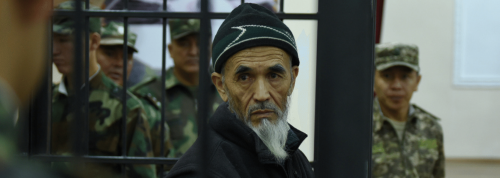Countries
Solidarity campaigns
13 August 2024
Georgia: Support striking workers at Evolution Gaming
5 June 2023
Georgia: Justice for Wolt couriers
10 May 2023
Belarus: Trade union activity is not extremism!
2 November 2019
Kazakhstan: Trade unionist Erlan Baltabay imprisoned - again!
19 November 2018
Kazakhstan: Stop repression and physical attacks on leaders of independent unions; hands off Larisa Kharkova, Erlan Baltabai and Dmitriy Senyavskiy
18 April 2018
MALOKHAT STILL NEEDS YOUR HELP
News
07 September, 2019 / turkmenistan
Turkmen Teachers Sent Early to Pick Cotton
On Sunday September 1 schoolteachers from Turkmenabat in northeast Turkmenistan were sent to pick cotton. They assembled outside their schools at 6.30 in the morning, having received the instructions from the deputy principals on Friday evening (turkmen.news has screenshots of the messages).
02 September, 2019 / uzbekistan
Cotton Campaign Roadmap of Reforms for Uzbekistan: END SYSTEMIC FORCED LABOR, ENACT STRUCTURAL REFORMS, AND EMPOWER CIVIL SOCIETY
This Roadmap sets forth a comprehensive vision to end forced labor in the cotton industry and ensure that reforms are fundamental and sustainable. Its purpose is to support the historic process of reform that is underway but incomplete to eliminate and prevent forced labor in Uzbekistan’s cotton sector.
14 August, 2019 / turkmenistan
A hermit nation ruled by an egomaniac: Is Turkmenistan on the brink of collapse?
Men in white fur caps proudly ride horses across the steppe, rows of modern machinery glisten, Barbie-pink flamingos strut before clear blue skies and a white yacht cuts through the turquoise waters of the Caspian Sea.These are idyllic scenes from a one-minute video promoting the inaugural Caspian Economic Forum, which between August 11 and 12 will see heads of state from Iran, Russia, Azerbaijan and Kazakhstan descend on Awaza, a new resort town that has been touted by Turkmenistan's Foreign Ministry as the country's Las Vegas
11 August, 2019 / kazakhstan
Kazakh trade union leader freed after global union effort
The President of the Republic of Kazakhstan, Kassym Tokayev issued a decree on the evening of August 9th pardoning trade union leader Erlan Baltabay, leader of the Fuel and Energy Workers' Union and vice-president of the Confederation of Independent Trade Unions of Kazakhstan (KNPRK), from custody. Baltabay was sentenced to seven years’ imprisonment on July 17, 2019, on embezzlement charges that the international labor movement condemned as being politically motivated. His sentence also included a prohibition on trade union activities for an additional seven years after his jail term
01 August, 2019 / turkmenistan
Turkmen Get By on Piecemeal Sales and Cash Withdrawals in Uzbekistan
The economic crisis in Turkmenistan, caused by the fall in hard currency revenue from gas sales, is forcing residents of the “Motherland of Prosperity” — this is the country’s slogan for 2019 — to keep finding new ways to earn money. Turkmen.news has already written about Turkmen citizens travelling abroad as shuttle traders. Our fellow countrymen have taken crockery and household items to Zhanaozen (Kazakhstan), domestic appliances to Urgench (Uzbekistan), and foodstuffs to Istanbul, while huge bags of Turkmen textiles caused a malfunction in the baggage system at Almaty airport.
24 July, 2019 / kazakhstan
IndustriALL calls for release of Kazakh trade union leader
IndustriALL Global Union is calling for the immediate release of Kazakh trade union leader, Erlan Baltabay, after he was sentenced to seven years in prison by a Kazakh court on 17 July.
17 July, 2019 / kazakhstan
International condemnation as repression deepens in Kazakhstan
The ITUC has harshly condemned the sentencing of Kazakhstan trade union leader Erlan Baltabay. Efforts to improve freedom of association for working people are once again jeopardised; but the country’s new leadership could still intervene.
13 July, 2019 / International
12th PERC Summer School “Democracy and freedoms in Europe and Central Asia”
The 12th PERC Summer School “Democracy and freedoms in Europe and Central Asia” took place in Budapest, Hungary, on 9-11 July. In his opening speech PERC President Irakli Petriashvili spoke about challenges to the freedom of association and democracy in the region, growing inequalities and gender gaps, and called all unions to be vigilant and pro-active to prevent further erosion of democracy and to advance workers’ rights and freedoms.
06 July, 2019 / uzbekistan
In Uzbekistan, women’s rights are changing - but not fast enough
In Tashkent, women facing violence at home have nowhere to go. No one has heard of shelters, and if a woman has no friends or relatives, the situation becomes impossible: no hotel will take a locally registered single woman, on suspicion of prostitution. It’s pointless contacting the police, even in the most desperate circumstances. In a recent case, police refused to accept a statement by a 14-year old girl that she had been raped, because she was “of the age of consent and had no obvious signs of injury”.
05 July, 2019 / kyrgyzstan
Joint letter to the EU about the situation of detained human rights defender Azimjon Askarov in Kyrgyzstan
Dear Madam and Sirs,We, the undersigned international human rights organizations, write to you to express our utmost and urgent concern about the ongoing wrongful imprisonment of Azimjon Askarov and the deterioration of his health, and to urge you to advocate with the Kyrgyz government for his immediate release, and his transfer to a safe third country for medical treatment.

